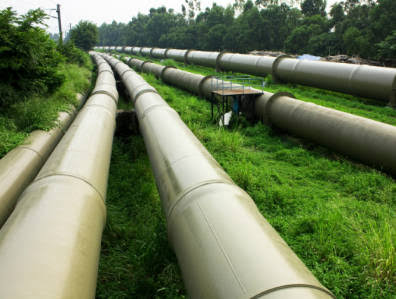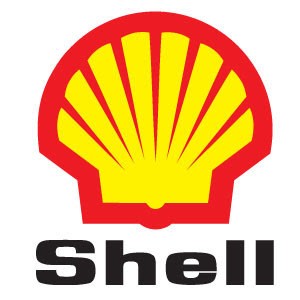Economy
Shell’s divestment spikes fresh concern over Nigeria’s output, revenue

There are concerns that the exit of oil giant, Shell, from the Nigerian onshore space may further hamper the country’s ability to fully harness the production and revenue potentials of the back-bone sector of Africa’s largest economy.
The apprehensions are anchored on the misgivings about the capacity of the indigenous oil companies to live up to the huge investment required to ensure the optimum performance of the highly capital intensive sector.
The British multinational oil and gas company headquartered in London had on Tuesday, January 16, disclosed its consent to sell its Nigerian onshore oil and gas subsidiary, Shell Petroleum Development Company of Nigeria Limited (SPDC), to a consortium of local companies for up to $2.4 billion.
“This agreement marks an important milestone for Shell in Nigeria, aligning with our previously announced intent to exit onshore oil production in the Niger Delta, simplifying our portfolio and focusing future disciplined investment in Nigeria on our Deepwater and Integrated Gas positions,” Shell Head of Upstream, Zoë Yujnovich, was quoted to have said.

Oil production
The buyers, Renaissance Africa Energy, made up of a consortium consisting of ND Western Limited, Aradel Holdings Plc, the Petrolin Group, First Exploration and Petroleum Development Company Limited, and the Waltersmith Group, had in a statement on Tuesday confirmed the acquisition of Shell SPDC.
“The completion of the transaction is subject to the requisite regulatory approvals,” Renaissance Africa had, however, stated.
Persistent fall
According to the analysis of a new report by the Nigerian Upstream Petroleum Regulatory Commission (NUPRC), Nigeria’s crude oil, “blended and unblended and condensate” output fell to 1.47 million barrels per day in November, indicating a back-to-back drop in production level since October.
Production level dropped to 1.56 million bpd in October after rising to 1.57 in September, the highest output level so far in the year. But the country could not maintain the momentum.
Data obtained from the upstream regulatory body reveals that output dropped by six percent from 1.56 million bpd in October to 1.46 million bpd in November 2023. Crude oil produced during the period was 1,250,299, while blended and unblended condensate stood at 49,457 and 166,429 respectively.
The volumes of oil produced at three terminals—Bonny, Forcados, and Escravos—were lower in November 2023 compared to October 2023. Bonny Terminal produced 3,573,540 barrels, a decline of nearly 21.7 percent from its October 2023 output of 4,563,571 barrels.
In November, Forcados Terminal produced 6.7m barrels of crude oil, a decline of around 15.4 percent from the previous month’s production of 7.9m barrels. In the same period, Escravos Terminal produced 3,890,073 barrels, a reduction of approximately 8.1 percent from the 4,234,584 barrels produced in October 2023.
Below the quota
In 2022, the then Minister of State for Petroleum Resources, Chief Timipre Sylva, attributed the inability of Nigeria to meet the Organisation of Petroleum Exporting Countries (OPEC) quota to a lack of investments in the oil and gas sector. Nigeria’s OPEC quota at the time was pegged at 1.8 million barrels per day (bpd) but the country struggled between 1.3 and 1.4 million bpd.
Sylva, who spoke at a ministerial plenary at the Ceraweek in Houston, Texas, said the speed with which international oil companies (IOCs) and other investors were withdrawing investments in hydrocarbon exploitation had contributed significantly to Nigeria’s inability to meet OPEC targets.
“Lack of investment in the oil and gas sector contributed to Nigeria’s inability to meet OPEC quota. We are not able to get the needed investments to develop the sector and that affected us,” he had stated.
Nevertheless, at the last OPEC meeting, Nigeria argued that the cartel should raise its crude oil production quota for 2024 from the proposed 1.38 million bpd to 1.5 million bpd, and was able to secure a quota of 1.5 million bpd.
Challenging scenario
Reacting to the divestment, an economist, Kalu Aja, said, “Shell leaving onshore Nigeria is bad.” Aja, who took to his X handle, explained that onshore or offshore was not what investors read, but that what they read was “Shell is leaving the largest oil exporter in Africa; things must be bad for investors in Nigeria.”
According to him, Shell or any multinational operating in a country attracts others, which is all about branding and national pride.
”That said, Shell lost a case in the Netherlands, and they were asked to “reduce” their oil footprint; Nigeria’s onshore divestment is their response”, Aja said, lamenting that open stealing of oil onshore was a significant factor in Nigeria.
Also reacting, the Head of Financial Institutions rating at Agusto&Co, Ayokunle Olubunmi, said the major downside to the divestment of the international oil company to the Nigerian indigenous firms would be the capital requirements to finance, explore and even optimise the oil fields, as investments in oil and gas are capital-intensive.
“That is why all those IOCs have contacts with banks and financial institutions worldwide that provide funding for their operations. These funds are dollarised as all the equipment and other items needed for operations are sourced in dollars.
“So, it is likely going to be difficult for the local firms to be able to raise the dollar amounts to explore the oil fields and maximise them,” Olubunmi said.
“It could, however, relieve key technical competence areas in the oil and gas operations to Nigerians as there are specialised positions the IOCs reserve for expatriates and have never been occupied by Nigerians”, he added.
On his part, a public affairs analyst, Mr. Olusola Ganiyu, told our correspondent in a chat that the exit of Shell from Nigeria is a bad development that does not call for any celebration.
“These multinationals came with heavy equipments that helped Nigeria to be where it is today in terms of oil production and so on, and I don’t think the local players have what it takes to step into their big shoes”, Ganiyu said.
‘’This was what happened in the case of solid minerals and look at what is happening there today after the foreign firms left it for the indigenous firms.”
Hurting tax revenues
Recently, the Executive Secretary of the Nigerian Content Development and Monitoring Board (NCDMB), Mr. Simbi Wabote, raised the alarm that the divestment of onshore oil and gas assets by the IOCs is depleting the Federal Government’s tax revenues due to the refusal of some of the indigenous players, who acquired the assets to pay tax.
Wabote, who was speaking during a breakfast meeting with editors of newspapers and directors of broadcasting stations in Abuja, noted that while the IOCs that operated the assets paid tax as at when due, some of the indigenous Nigerian companies that bought the assets have stopped paying tax. He accused indigenous operators of flouting the Nigerian Oil and Gas Industry Content Development (NOGICD) Act of 2010.
“In many instances, international operators tend to comply with the Nigerian Content because it is in their DNA to obey laws or they have to show evidence of compliance to their home offices”, Wabote said.
“On the contrary, many indigenous companies feel entitled and assume they can get away with non-compliance. At other times they want to save costs to the detriment of the local economy.”
According to him, some indigenous firms have also argued that they should be excluded from the implementation of the NOGICD Act since their primary investors are Nigerians.







